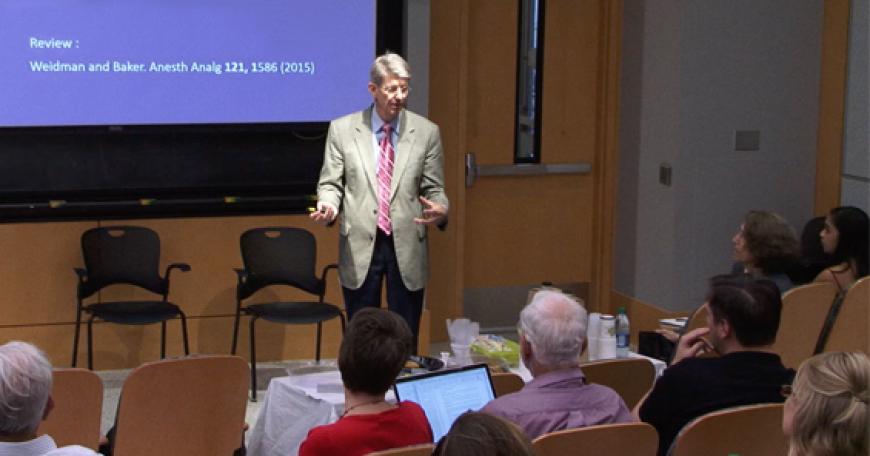
The Cognitive Science of Teaching and Learning: How People Learn
Keith Baker, MGH, MD PhD, chemist and neuroscientist - this guy has experienced all kinds of education systems, teaches medical students in his daily life, and his professional experience extends to varied fields. “I train doctors”, he simply states. And with that job, comes the responsibility to enable learning in the most efficient way. Especially in the medical field, where stakes of failure are high and inadequate knowledge retention may have serious consequences, how can educators train their students to learn and understand huge volumes of information and protocols?
As a self-declared neuro nerd, I loved the neuroscience perspective that Baker used to ground his discussion. Clearly there are discrete limits to our cognitive and memory abilities. Baker described a medical student who seemed to become deaf to all instructions during every medical procedure. Apparently, a controlled study suggests that while learning a new method or information, even simple tasks become impossible to accomplish simultaneously. In this case, many doctors in this study failed to notice flashing objects on the surgery monitor during the procedure. How vulnerable is the learning process!
Throughout the talk, I had the sense that Baker was teaching us how to hack our brain and optimize our learning process. For example: when preparing for a test, had you ever the feeling that you ‘don’t even know what you don’t know?’ Baker suggests that the opposite is often too true. This is the illusion of competency, the deceitful sense that you understood what you just read…although you are on the verge of forgetting absolutely everything. However, evidence shows, students who take the time to predict how much they learned after reading a paragraph, after attempting to summarize the facts, are much more accurate in their estimates. Therefore, providing intermittent questions with the answers¸ during the learning process breaks the illusion of competency and enables student awareness of what exactly they had not remembered.
Continuing from the neuroscience prospective, Baker explains that constructivism, or the tendency to use prior memory to build new information, necessitates collaborative discourse. For example, if you were to describe a bird to a fish, the fish would understand the concept of ‘bird’, as a fish with wings. In the same way, unless students experience cognitive dissonance, or the realization that new information clashes with old, learning may be inaccurate. Therefore, Baker stresses the importance of discussing misunderstanding, and asking students to defend their position. An educator can gage exactly the point of inadequate learning, simply by listening to their students’ explanations of the material.
So how can educators and students both practically utilize these “hacks”, presented from an extremely neuroscientific perspective? Baker emphasizes the benefits of a ‘growth mindset.’ Despite, our cognitive limitations, small working memory, and narrow attention, a growth mindset enables success by learning from failure, being active in asking questions, and orientation toward a goal, rather than validation. Furthermore, Baker concludes that the vulnerability of the learning process requires educators to “have patience and show empathy.”

Zoya Fan, MIT '19, is majoring in Biology and Global Studies
Visit Dr. Baker's event page with presentation slides and the video of his xTalk.

